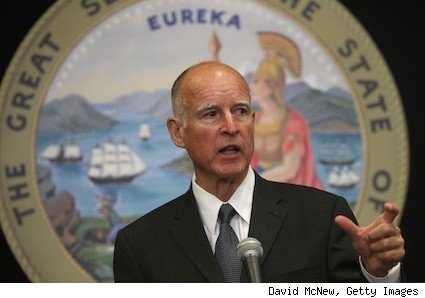California legislators in late June approved dozens of amendments to this year’s state budget, but opponents say it’s still unbalanced and incomplete.
The budget depends on voters approving an $8 billion tax increase in November. If they refuse it, billions in spending cuts will kick in on January 2013.
‘Worst in California History’
Assemblyman Jim Nielsen (R-Gerber) calls this “probably the worst budget in California history.” He argues that the budget and the trigger cuts are made up of “goodies” and “disincentives” to manufacture voter consent for the tax increases.
According to the California Budget Project, more than 80 percent of the $6 billion in automatic reductions would hit public schools, and most of the rest would impact community colleges and universities.
‘Idea Is to Coerce Voters’
George Runner, a member of the Board of Equalization, says “the whole idea is to coerce voters” into approving the taxes by threatening cuts “that the administration hopes voters will see as too painful.”
Runner points out the governor’s high-speed rail project, which could cost nearly $100 billion, is not on the chopping block. Neither is the new “transitional kindergarten” program, which adds an extra year to the curriculum.
Most of the proposed tax increases would come from an income tax increase on Californians earning more than $250,000 a year, with the top bracket going from 10.3 to 12.3 percent. Combined with an increase of one quarter of a percent on the state sales tax, this is expected to take another $8.5 billion from taxpayers and consumers by the end of 2013.
Unfunded Pension Liabilities
Steven Greenhut is the new vice-president of journalism at the Franklin Center in Sacramento. He argues the Democrats have presented a “false budget choice: fewer programs or higher taxes” because they are “doing everything they can to protect public-sector unions.”
California has unfunded public pension liabilities of more than $497 billion, according to the Stanford Institute for Economic Policy Research.
Last October, Gov. Jerry Brown (D) proposed reforming the pension system through a 12-point plan that, his office stated, “would cut roughly in half the cost to taxpayers.”
Asked what steps the government is actually taking on pensions, Nielsen said, “I hear words, but no movement.”
David Wolfe, legislative director at the Howard Jarvis Taxpayers Association, says he believes Brown needs to follow through on pension reform if he is to have “any prayer” of getting his tax increase passed in November.
‘Cynical Political Theater’
The budget as originally passed on June 15 contained only “broad categories of spending,” said Kris Vosburgh, executive director at Howard Jarvis. “It was like Pelosi said about Obamacare: ‘We have to pass it to find out what’s in it.'”
The budget was amended with 28 trailer bills on June 27. These bills may be proposed and passed immediately, without any requirement to wait for public review and comment. Vosburgh says this means “the majority party can do it all in secret.”
Nielsen calls the entire budget process “cynical political theater,” pointing out that one of the 28 bills merely relocated the governor’s tax increase proposition from the bottom of the November ballot to the top. They did this in the belief voters are more likely to approve measures higher on a ballot.
‘Voters Were Deceived’
California’s budget procedure is the result of Proposition 25, which voters approved in November 2010 in an effort to speed up the state’s often-torturous budget process.
Prop. 25 included a provision to withhold legislators’ pay if they do not deliver a balanced budget by June 15 each year.
After a flap over the budget deficit in 2011, the California Superior Court ruled only legislators have the authority to declare a budget imbalanced and thus deny themselves pay.
Vosburgh said as long as lawmakers pass any bill related to the budget, they will still be paid. This year “the budget is not balanced unless the voters approve those taxes. So it’s just another flimflam budget.”
Mike Reid ([email protected]) is primus inter pares at Invisible Order, a libertarian editorial-solutions company. He also teaches anthropology at the University of Winnipeg.




